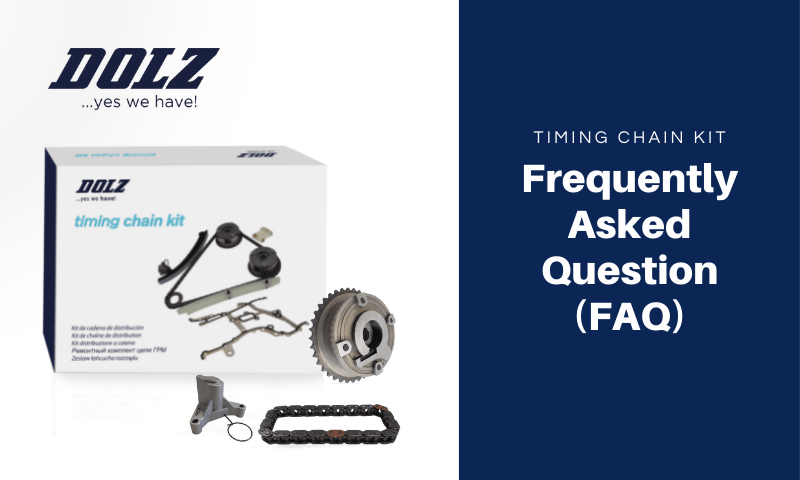What does a car timing chain do?
Virtually all internal combustion engines are equipped with a timing belt or a timing chain. A car or truck timing chain is a metal component, with links, essential for the correct synchronization of the movement of the crankshaft and the camshaft so that the valves open and close without the pistons hitting them.
By doing so, it transfers energy, creating a rotational speed that causes the camshaft to rotate at exactly half the pace of the crankshaft, allowing for speed control and transmission. It is a core part of the internal combustion engine, and it guarantees that the pistons and valves fire exactly when they should for smooth engine functioning.
When does a car timing chain need to be replaced?
Because of the way it operates, a timing chain’s replacement timeframe is based on mileage rather than lifetime. Although the mileage’s replacement interval depends on each vehicle, timing chains might need to be changed between 80,000 and 120,000 miles, depending on whether there is a specific issue with it or following the manufacturer’s specifications.
Although later vehicle models host VVT applications that display engine error codes prior to rattle, older versions will show no alerts. Therefore, if a vehicle is close to 100,000 miles, it is worth looking for symptoms and signals that might indicate worn timing chain inefficiency before it starts to misfunction completely.
Signals to replace a timing chain
- Lack of accelerating power and poor engine performance due to timing chain stretching.
- Engine starts driving rough or failing due to the pistons being damaged from contact with the valves.
- Unusual noises such as the engine starting to rattle while idling due the timing chain being loose.
- Metal shavings found in the engine oil due to the timing chain beginning to wear out.
- Complete engine failure due to a worn and broken timing belt.
Related content: Dolz Timing Chain Kits – Main Components/
What factors cause damage to a timing chain?
If there is a problem with the car timing chain, your vehicle most likely has one or more than one engine malfunctions. One of the first noticeable symptoms will be noise, especially during a cold start of the vehicle, when oil pressure and flow are at their lowest level, so is chain lubrication.
Wear and tear can cause excess slack in the car timing chain, this will cause a rattling sound and, in extreme cases where the chain is in contact with its cover, a clanking sound. If the wear is great enough so the tensioner can no longer compensate for the slack, the noise can even continue even after the vehicle warms up.
DOLZ Timing Chain Kits, the most complete kits on the market
A complete Timing Chain Kits range with the top-selling references in the market with the aim of achieving the best possible engine performance and continuing to improve service.
DOLZ timing chain kits offer competitive, quieter chains that promote longer transmission life. Always being the latest OE version.
By using the highest quality materials with a synergistic design, these timing chains offer great robustness and reliability, 100% tested.
Easy-Fit kits that include all the necessary components for a professional repair: chain, sprockets, VVT, tensioner, guides, oil seal, hardware, etc.
Looking for a reliable and quality timing chain supplier? Contact us to know more!


